
From the press release,
In response to ASI’s announcements of partnerships with traditional publishers, the three writer’s guilds led a campaign to discredit the publishers involved in creating these groundbreaking opportunities, even going so far as to de-list one as a qualified publisher. Weiss believes the guilds may not fully understand the role self-publishing can play in expanding options for writers and consumers while at the same time providing benefits to traditional publishers who are in the midst of tremendous upheaval.
Personally, I find this is to be good news because the anger over the Harlequin partnership wasn’t just because Author Solutions is a vanity company, but a reaction to the encroaching presence of self-publishing in general. Though people said their main concern was that AuthorHouse, et al. are a rip-off, this was not entirely the case. In the terms and conditions of the MWA it states (emphasis added):
The publisher, within the past five years, may not have charged a fee to consider, read, submit, or comment on manuscripts; nor may the publisher, or any of the executives or editors under its employ, have offered authors self-publishing services.
As I wrote about the mess:
Even if, say, a publisher paired up with Lightning Source so writers could retain rights and get more profit for each book sold, a group like the MWA could still say that the publisher is offering “self-publishing services,” which would violate their terms. So this isn’t about vanity publishing at all, but self-publishing in general.
This needs to get sorted out, as self-publishing is growing and these partnerships make some sense. Though Author Solutions companies are not ideal when it comes to releasing a book, they’re not necessarily the total rip-off they’re sometimes portrayed to be, as it can sometimes be cheaper to order a $400 package than to order services individually. Even if the cost is even, it’s more convenient, and for many authors who don’t want to take on all the responsibilities of being a true self-publisher, a subsidy service can be useful.
Author Solutions has a long way to go to improve customer service and the quality of the product, but an Author Solutions-published book shouldn’t be rejected outright because it’s not a good deal for writers. As self-publishing continues to grow, and traditional publishing continues to narrow, more writers are going to need this outlet, and giving them the option is not automatically a way of stealing their money.
Basically, self-publishing and traditional publishing need to co-exist and the merging of the two shouldn’t be so controversial, so maybe this ploy by Kevin Weiss will work.
Get an Editorial Review | Get Amazon Sales & Reviews | Get Edited | Get Beta Readers | Enter the SPR Book Awards | Other Marketing Services


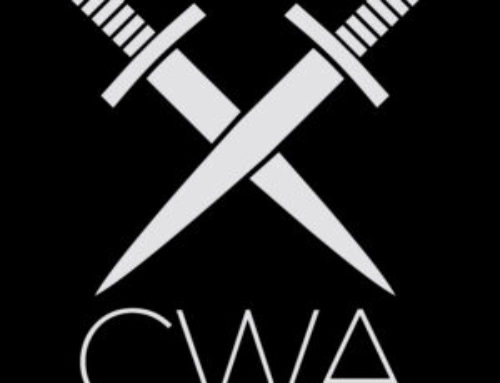
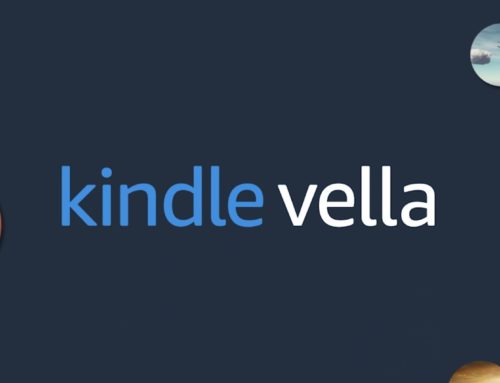
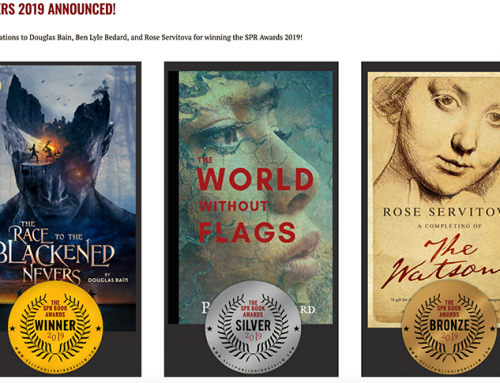
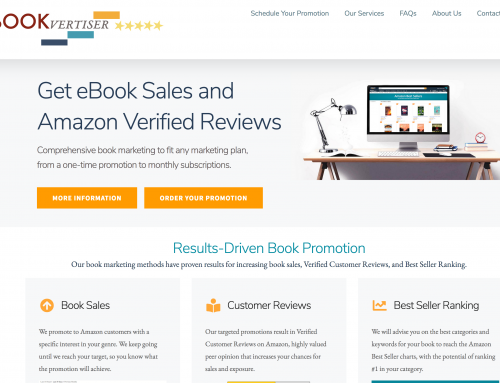
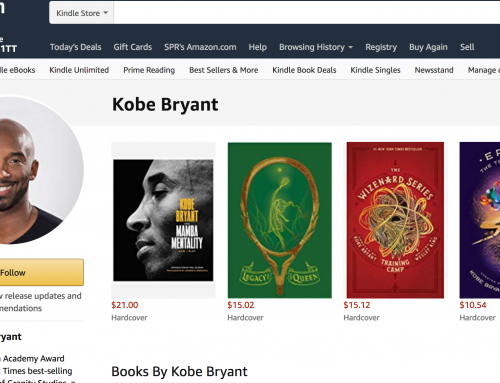
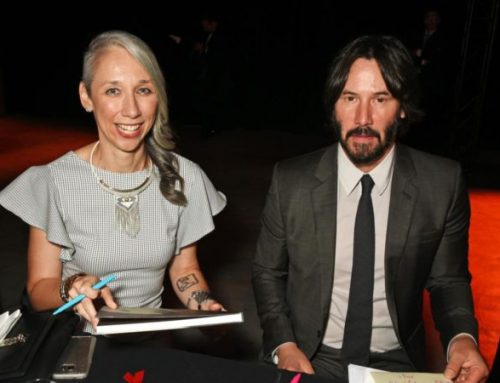

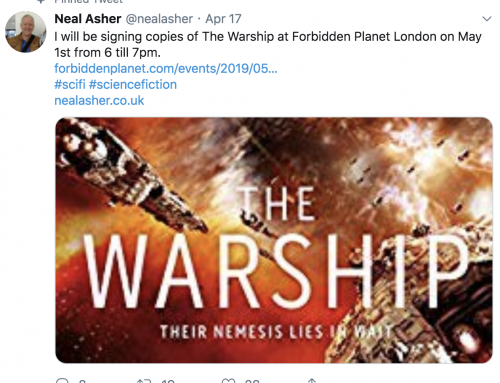
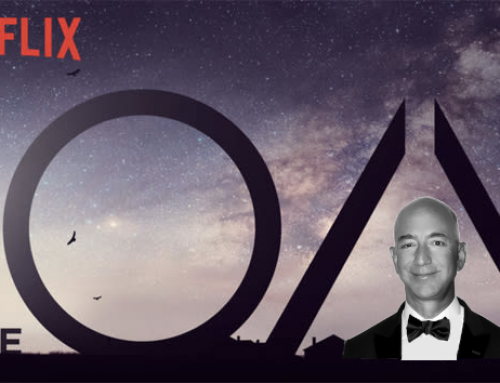
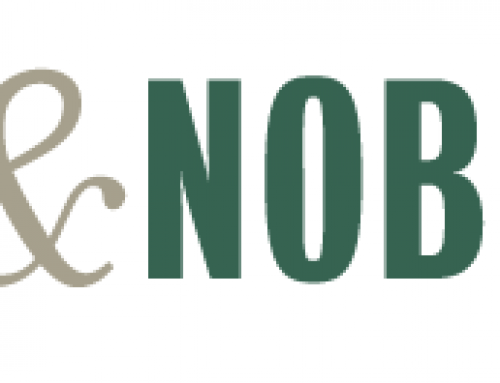
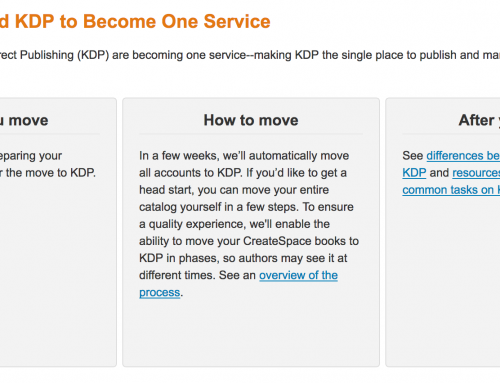
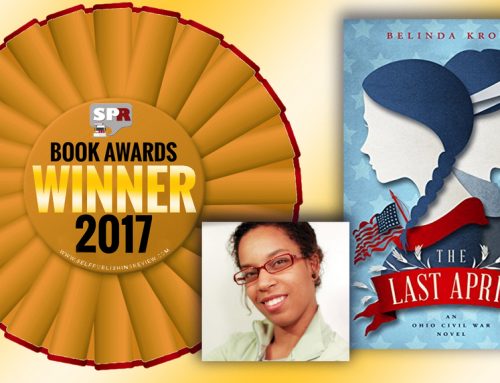
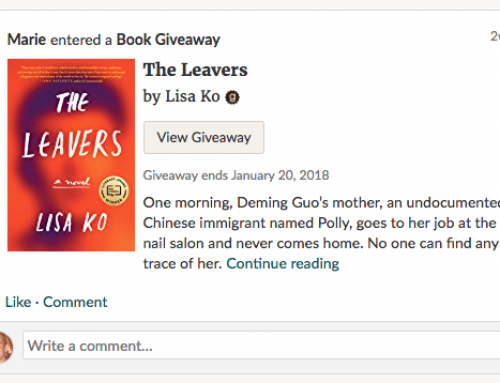
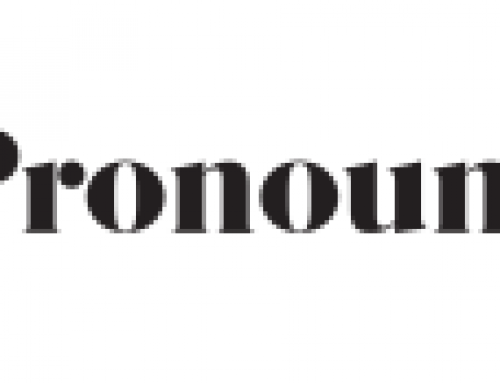
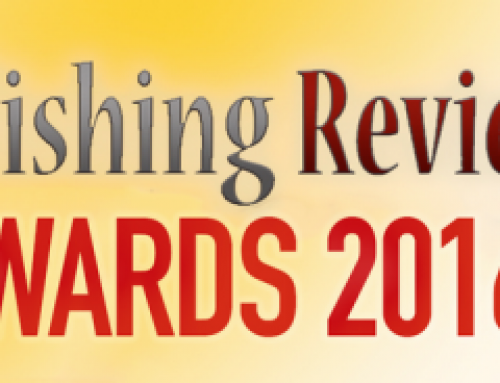
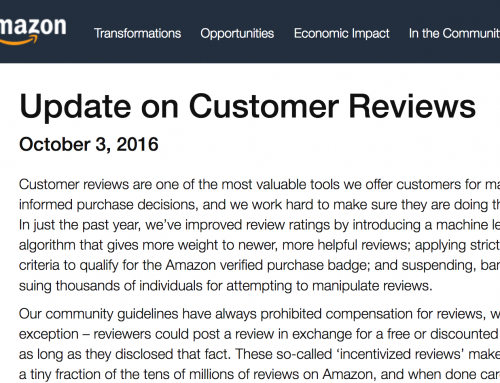
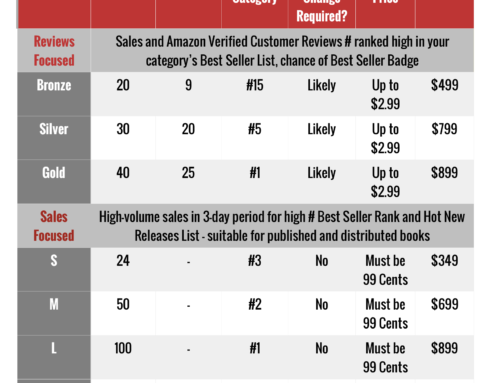
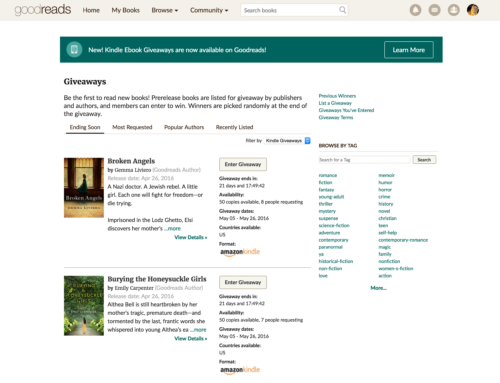
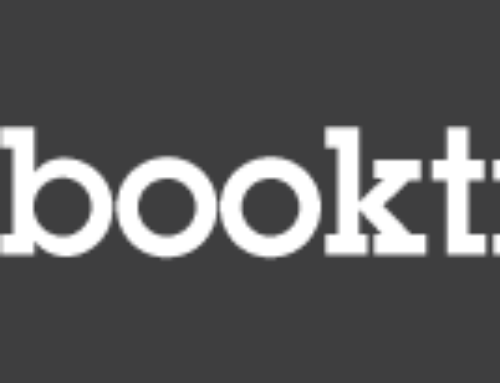

MY anger over it was because Harlequin originally had the Harlequin name ON the author services brand AND said they would be directing authors they rejected to Harlequin Horizons. NO, epic fail. Some people want the traditional publishing system. And for those people, to take naive authors and direct them to self publishing and making them think they’re a “Harlequin author” is just crappy.
In addition all the services were way overpriced and took advantage of authors.
Am I for self-publishing? Yes. Do I think self-publishing is right for everyone? Hell no. Do I think most self-publishing authors should go through vanity POD presses? Another Hell no.
This kind of crap Harlequin did just furthers the ghettoizing of self-publishing and giving the impression that that is all self-publishing is.
No. Self-publishing is an art. Self-publishing is hard work. And I resent it when a company tries to monetize their slush pile by blowing smoke up authors’ skirts.
Zoe,
‘though late to this discussion, I totally agree with you on the topic of whether or not self-publishing authors should be directed to vanity POD presses. Self-publishing IS hard work and the ‘perfectionists’ art. What an oxymoron the term ‘self-publishing’ has become! I’m in favor of the term ‘independent publishing’ [indie-pub] ~ but for how long will THAT term be safe from Harlequin Horizons and Lulu et al?
OK, then call it something else, if it’s just a branding issue. But here’s where I don’t agree with this – your use of “naive authors.” As if there can’t be these partnerships because authors need to be protected from themselves. If authors enter into a bad partnership, that’s their fault, not the fault of the publisher.
Last night we had a bit of disagreement about an agent calling to task people who write stupid things in queries. If we’re going to be completely honest, there are a huge number of writers who don’t know what the hell they’re doing and Author Solutions is profiting off their lack of knowledge.
Like you said last night,
“It pokes fun at writers too lazy to do even the most basic homework. I don’t respect laziness. Sorry.”
What’s the difference here? It’s another case of writers being too lazy to research other outlets – it’s their fault if they don’t do their homework. So long as the publisher is not being deceptive, it’s all right – and, yes, Harlequin Horizons was very close to not being upfront about what they were offering. But if a writer is being asked to shell out money and still doesn’t understand that it’s different than traditional publishing, they’re missing a circuit. I don’t respect laziness either.
Well on the surface I agree with what you’re saying. I’m annoyed as much as the next person by all the “protecting authors from themselves” business. BUT… I just still think it’s different. This isn’t a case of telling authors not to self-publish because they might shoot their eye out… this is a case of someone wanting to be a Harlequin author, not a self-published author, and then taking the steps to try to become a Harlequin author.
Then… Harlequin redirects them to their self-publishing arm. That’s a conflict of interests. That’s sleazy. And because larger traditional publishers and agents have set themselves up not only as Gatekeepers, but as being in the “author protection business” (since they constantly give out tips for the naive author and warn them about this and that), then I think it’s not too much to ask for those who have become trusted names not to become a big hypocrite and stop doing that the second they stand to make a buck off their slush pile.
But I get what you’re saying, and I can see where you draw the correlation between my opinion over the situation last night and over this. All I can say is that for me, so much is based on the specifics of the situation.
And also it’s a matter of severity. It’s one thing for an annoyed agent who has a lot of their time wasted by people soliciting them who can’t even read the instructions, to poke fun in a Twitter post (anonymous fun even.)
But it’s another thing, IMO for a publisher to take actions that make them “one of the sleazy.”
And yes, I agree, laziness is laziness. Stupid is stupid. And writers need to stop being so damn naive as a group. BUT… that doesn’t give Harlequin the excuse to become a predatory company. And what they did was bordering on predatory.
You think it doesn’t give agents the right to vent. I disagree. Venting and baiting and switching people are two different activities with wildly different consequences.
I can’t resist saying that I still see nothing whatsoever wrong with Harlequin’s offer to give rejected authors a way to be published. All of the information is out there on the H website. All anyone has to do is ask themselves if they want to bite on this offer. “Overpriced” is entirely up to the buyer. Buy the package or don’t-what is the problem? I still say most of the squalling is being generated by the rainmaker H authors who fear they will somehow be associated with a “diluted” Harlequin product and lose money down the line. Again, why? Any reader will his salt can tell in a few sentences if they are reading competent work or not. If so, the book is not purchased. If it is an engaging piece of work that was overlooked in the beginning, the book will catch on and H may see a chance to profit from picking it up this time around. Or the author may choose to continue with SP.
Readers and authors are not five year olds who need to be protected from adult life and adult decisions. It’s hardly a tragedy either way. An author may lose some money and have his precious feelings hurt, or the book might actually catch and and find some legs in the marketplace. . Either, he will learn something useful, and life as we know it really will go on for all of us. Enough already. I would never have guessed the average writer was such a fragile flower. If so, their chances of making it before being squashed like a roach would not seem to be high. It’s not a good place for the timid or fragile soul. More like a street brawl these days.
Linda,
You don’t find it sleazy for Harlequin to send a link to their Self-publishing arm to all the authors they reject? I don’t know if that’s still their game plan, but it was their original plan, which was just, ugh. I mean WTF?
Also, I hate to sound like a snob, but if someone is using a vanity POD press it’s not “really” “self” publishing. Someone else can’t self-publish for you.
Henry, personally I like the direction the discussion is going, because there are many writers who want to get into print, and many ways to do so. Some methods suit some authors more than other. As you say, for many authors who don’t want to take on all the responsibilities of being a true self-publisher, a subsidy service can be useful. and I don’t see anything wrong with that per se.
The problem of deception is tricky, though. Certainly authors ought to do their research, especially when making decisions that can potentially affect them and their work for many years. But some of the advertising and the statements coming from subsidy companies are pretty close to the line, don’t you think?
From experience I can tell you that it’s not much fun to have to tell prospective self-publishers what the actual potential for their book is, or how much work, time and money it will take to attempt to reach that potential. But I’m all for having lots of different legitimate non-fraudulent, non-deceptive ways to get into print so authors can decide for themselves what suits them best.
I agree about the deceptiveness, and the general scamminess of Author Solutions companies. They should really rethink about how they go about offering these packages because it’s horrible for their brand.
Great post about this situation here:
http://shilohwalker.wordpress.com/2010/01/22/sorry-mr-weiss-im-not-impressed/
Interesting video and interesting discussion. After reading the posts and following the link to Shiloh Walker’s blog it appears to me that this issue has little to do with the merits of self or independent publishing and more to do with the self interest of a business selling snow balls in hell to dumb consumers…nothing new or unique about that.
I am self published by choice after in depth research of a radically evolving industry.
Traditional publishers will only volunteer to tell the uninformed author as much as they want him/her to know and will not produce a “parsed” contract explaining all of the subtle ramifications of being a publisher captured author. It is up to the author to research, ask, evaluate and act.
Let’s face it, the term caveat emptor is as old as the language it is written in and it applies to signing up for the services/support of a traditional publisher, buying a Toyota or deciding to venture into the entrepreneurial world of independent publishing.
I have 35 years experience as a moderately successful entrepreneur and therefore came to the conclusion that availing myself of the huge offerings/opportunities in the new world of independent publishing would work for me.
As I see it the delivery of a book to the ultimate customer, the reader, can be parsed into eight phases:
1. Writing the book.
2. Editing the book
3. Graphics and layout
4. Production
5. Distribution
6. Marketing
7. Sales
8. Remuneration
Each author has different capabilities and preferences. Some are contented or only capable of doing # 1 and must seek support for 2 through 8, others can do 1 & 2 but must seek support for 3 through 8, etc., etc.
The fewer phases an independent author (and that is all we are talking about here, traditional publishing channels only permit the author to participate in 1 & 6) can handle the more horsepower they must find in their support organization. I have to say, after doing an in depth comparison, Amazon/CreateSpace provides either directly or single point access to all of the phases from 2 through 8 at least as well as and in my opinion better than any of the others in the “Independent Publishing Fulfillment Business” (but that is only my opinion and respect those who have found excellence elsewhere).
For my wife and I it was important that we have a professionally packaged product together with Global Distribution, and since we have the technical and business experience to do 1, 2, 3, 6 and to some degree 7 that left us looking for an organization to provide: 4-Production, 5-Distribution (Global/multi-channel) and 8-A reliable channel for Remuneration.
Amazon/CreateSpace has provided those services and I must say in a far more expansive and reliable way than we expected form any fulfillment organization.
• Look For The Hook and Treachery In Turtle Bay are available on Amazon, On Barnes & Noble internet site, In Barnes & Noble Stores (via Ingram\Lightning Source POD through CreateSpace)
• In hundreds of other Book Stores (again via Ingram\Lightning Source POD through CreateSpace)
• In Libraries via Baker & Taylor by way of CreateSpace Direct POD
• In a Global E-Store provided by CreateSpace (where by the way the royalty is higher than any other channel except direct sales)
• And, if you love the book and want a signed copy, it is available directly from the Author Page on the specific book’s internet site (www.lookforthehook.com or http://www.treacheryinturtlebay.com). Fulfillment handled by us.
Our cash outlay has been minimal, the cost of books for promo, review and the associated postage. No upfront fees, no “Third Party” expensive services
The time spent has been enormous, but it would have been even if Random House was my publisher and my cut would have been miniscule and I doubt that six months after the first book hit the streets I would be able to brag that I have had sales in countries across the globe in trade paperback and e-books…which I can as an independent author/publisher and that I have sales somewhere in the world every day. Treachery In Turtle Bay, my first novel was published the last week of July 2009.
I think that the cross selling by Harlequin is ‘not nice’, but these are hard times and if people are dumb enough and lazy enough to spend 1,000 to 20,000 to see their book in print and Harlequin is ambitious enough to create the vehicle to take their money, it is my opinion that the mark deserves what he\she gets…but then again, I was raised in the Bronx where street rules govern and only the strong or fleet of foot survive.
ghugh, brilliant post! I especially love “publisher-captured author” haha. That’s very much how I see it. I could never motivate myself to truly “go after” trad publishing because I always felt like a dolphin caught in a tuna net. Plus there is something very exciting about being flexible enough to change with the industry and just seeing what you can do out there as an indie. I can’t find that out with a publisher.
[…]Also some strong and valid discussion as always here on selfpublishingreview.com.[…]
http://mickrooney.blogspot.com/2010/01/author-solutions-ceo-throws-down.html
Dear Zoe,
I will certainly agree it is all too easy for hopeful new writers (who bite on the Harlequin offer) to believe they are on the same level as an established writer who was published through the traditional process long before publishing began unhappily going the way of journalism. (Several family member made careers in this field and are now looking frantically for other means, any means, of supporting their families) But I do think anyone who intends to survive in the weasels-trapped-in-a bag fight that seems to be the current state of publishing for new writers, and especially fiction writers hoping to be published, has simply got to grow up and research the situation. Anyone with the breathtaking amount of money it would take to purchase the entire Harlequin enchilada can likely well afford to spend it, and again, nothing like hurt feelings to make a person finally grow up. I see no other way to survive in today’s crowded writing market. Way too many hopefuls for a few places in in a venture that now STRONGLY prefers the blockbuster and the celebrity tell-all, or celebrity author. I never thought so many people would be eager to learn about Suzanne Sommer’s (sp?) expensively liposucked thighs. Amazing. Wish it was otherwise, but it surely is not. Sorry to sound so disjointed. Works that actually earns one enough money to live on, almost, is calling.
Meanwhile, I appreciate hearing your thoughts, and thanks to Henry for providing this most useful forum for everyone.
Linda, you’re right. They do have to learn. I guess my issue is/was just with companies who have built up a reputation like Harlequin who then when the economy gets shaky, turn on those submitting work to them so they can monetize their slush pile.
It wouldn’t have bothered me if it had come directly from Author Solutions or another company we already don’t expect that much from.
Well, I guess I’m going to jump on the bandwagon here from a different viewpoint and talk about the essence of the video regarding the invitation for open discussions with RWA, MWA, and SFWA.
I am a member of RWA, and frankly after a year’s worth of paying my dues, I will not renew again. About the only thing I appreciate is their monthly magazine, but I find absolutely no support and very little respect being a self-published author among their ranks.
Self-published authors are not recognized in any manner. It’s as if you don’t exist. You cannot enter into contests, or even be acknowledged in any way, shape, or form, or move up in the ranks of the association. I found even while visiting forums or meetings, you say you’re self-published, and the room hushes to a dead silence.
Their stance and written statements strongly oppose self-publishing. However, there is a drive among the inner ranks to get the association to wake up and take notice, and I have signed a petition that is circulating. Why they refuse to acknowledge talent between the pages of a self-published book is beyond me. It’s narrow-minded and shows an inability to face change in the evolving world of publishing.
Frankly, I would like to see more open discussion with these organizations. Perhaps it will help in getting them to reconsider their stance and give the respect to writers who have paid their dues to be in print through other means.
Old ways are hard to break, and I suspect there will always be organizations who resist change and dig their heels in protest.
We are surely having fun now. I had not thought much about all of this before, but when only a few places exist for the avalanche of new writers who would like to be published, is it such a bad thing to provide VP and SP options for them? Is buying an expensive publishing package really any different than treating oneself to a luxury cruise or tropical vacation or new SUV? I think many new writers would really be pleased to have a professionally published book to show friends and family, and that seems fine to me. If they are happy with the deal, who am I to say they have been taken for a ride? And where else would such services look for customers except in the endless lists of those hopefuls whose work did not make the cut when it came to agents and publishers?
The miserable reality is that virtually none of these hopefuls have a chance in heck of being published. Even if they have a worthwhile story which is well-written, they certainly do not have the critical “platform.” They are Nobody From Nowhere, and through NO fault of their own, have no potential buyer or audience. That is the painful state of publishing right now.. If you are not Suzanne Somers, or the close relative of a famous serial killer, ain’t nobody waiting breathlessly for your words about whatever.
BUT, if you have a dynamite idea, something unique, as in teen girl falls in love with hot teen boy who is torn between loving her and killing her, so that he can drink her blood, by golly you are on the train, and can spin out an entire series which managed to capture both adult woman and teen girl market for years n’years. And that my friends, is what being touched by a God can do for a writer. Whether most people will be able to do that, is quite another question. I am really enjoying hearing other people’s thoughts on this topic.
Hey Vicki! I think so much of it is about validation. When you have authors who have worked so hard to get traditionally published because that was what “it took” to be considered an author by anyone, and you aren’t making a lot of money anyway from it… I think they just really really don’t want to give that up.
If places like RWA were to open their arms to SP authors then what happens to the “validation” of being a “full member” of RWA because you got published by one of their “approved publishers?”
I really think that’s the wrong thing for authors to focus on, but many will do it anyway. Also, I think there is the issue of, if RWA “were” to open it’s arms and start in some way recognizing SP authors, then how would they deal with them when it came to things like the RITA’s? If every self-pub romance author were to submit a book they’d be under a deluge which would be no better than the slush pile. They may as well start reading people’s slush for winners. And I don’t know “exactly” how the RITA’s work, never bothered to check that in-depth since I don’t quality as an indie… so it may work on nominations. Of course if it didn’t work on nominations, then it could be turned into that, so there would be no “ZOMG we have 7,000 entries.
You could probably tell me if it’s based on nominations from RWA or if it’s some kind of submission process. Really these organizations “should” be concerned with helping authors find the right path for them. Once it becomes clear most authors even trad published aren’t making career level money at this, then they can focus on what actually matters, which is authors picking the best option for them, and hooking up with readers. It doesn’t ever have to be more complicated than that.
But somehow it is.
Hi Zoe, your comments above intrigued me, particularly to Vicky.
In many ways you answered the questions of validation for authors in your own comments.
“When you have authors who have worked so hard to get traditionally published because that was what “it took” to be considered an author by anyone, and you aren’t making a lot of money anyway from it… I think they just really really don’t want to give that up.”
What intrigues me is the giving up what ‘it took’. The it somehow being what defines the difference between traditionally published authors and self-published authors. I’ll use the term self-published author in its loosest definition for the discussion. You suggest the difference is validation, but this of course is highly subjective. Subjective based upon where the criteria and source the author feels that validation comes from. In the case of the above comments—the RWA. I know from experience from talking to self-published authors that their sense of validation does not come from organisations like RWA, in fact, those organisations which allow self-published authors to become members often still experience a feeling of marginalisation and not being a ‘real fully-fledged’ member. My take on it is—if they let you sign up to the gig, take your membership fee, then they really can’t say, ‘Oh, but you’re not allowed turn up at the annual party’.
I’m not going to specifically comment on the policies of the RWA, MWA, or any other writers’ guild or association. They all have their own criteria and rules. But I do believe the attention and fallout of the moves by Thomas Nelson and Harlequin last year to introduce paid-publishing services through imprints run by ASI has had a curious benefit to authors as well as writers’ guilds. It’s at least made those guilds question the validity of their own strength to challenge and change what they believe is wrong in publishing, and authors to evaluate where they are on the ladder of importance within those guilds.
Mick wrote “But I do believe the attention and fallout of the moves by Thomas Nelson and Harlequin last year to introduce paid-publishing services through imprints run by ASI has had a curious benefit to authors as well as writers’ guilds. It’s at least made those guilds question the validity of their own strength to challenge and change what they believe is wrong in publishing, and authors to evaluate where they are on the ladder of importance within those guilds.”
First off, they aren’t guilds. They are associations. And at least in the case of MWA, new memberships and renewals have surged since the controversy. If anything, this controversy, and the MWA’s strong stance against unethical conduct and predatory publishing practices, have made authors appreciate what the organization is doing for them and underscored the validity, and importance, of standing by our core ethical and professional principles. I’ve heard from scores of romance writers who were deeply moved and appreciative that virtually all of the major writers organizations, representing practically every genre, were as mortified by Harlequins actions as they were. There’s a reason that MWA, SFWA, HWA, and RWA are united in their outrage…because the Harlequin deal with Author Solutions violates long-standing, common sense ethical standards regarding conflict-of-interest and takes advantage of writers of all genres.
Lee
Hi Lee,
Ok, I’ m not going to play silly semantics about whether MWA/RWA/SFWA are guilds or associations. The bottom line is they are in existence to protect and advise authors on their rights and try to keep publishers on the hard and fast.
If these organisatons are so worthy, importantant and relevant, there would have been no need for ‘memberships and renewals’ to have surged. Writers would have been already on board. The reality you seem to ignore is that so many writers are on the outside of the world you exist in. Good luck to you—but it is not the world most other writers plough day to day. Where I see a changing industry, you see a protectionism of what was—an attempt to grant status to publishing where there is no longer any status. You are confusing the process of publishing with the status of publishing. I gave up that charade a long time ago, as did many of the authors who visit this site.
Don’t get me wrong. I think we both approach this discussion from the same point. I advise authors on a daily basis, and for the most part, I direct more than half back into the traditional routes of publsihing. The others are far more savvy, have even tried the traditional route, some with limited success, but choose alternative routes.They know what a good paid service is and isn’t. To suggest their endeavours are vanity is quite frankly purile and offensive. They approach self-publishing as a business decision, not a vain and misguided attempt at becoming a fool or shifting a $1000+.
What these authors need is the support of organisations within publishing, not there glare and condemnation. If these organisations want to bring ASI to task, and other ‘vanity’ so-called publishers to task. The best way is to involve them in the business of publishing, rather than pretend they are on the outside, is to engage and implement standards upon them. You can’t do that by looking in the shop window and say, ‘That’s shit, I wouldn’t buy it’.
Mick writes “If these organisatons are so worthy, importantant and relevant, there would have been no need for ‘memberships and renewals’ to have surged. Writers would have been already on board.”
Huh?
I’m sorry, but I don’t understand your logic at all.
The writers are already “on board,” Mick. But current MWA members have to renew annually and the MWA accepts new members all year around. Our efforts to hold Harlequin to long-held, common sense ethical standards of professional conduct have resulted in renewals and new memberships, not a drop-off, as some self-published authors gravely predicted when we took our strong stand. The “fall out” of MWA’s actions have been positive for the organization. In fact, I wouldn’t call it “fall out,” on the contrary, I’d call it “the benefits” or the “upside” of standing by our principles and defending writers, professional and aspiring, from predatory practices.
Let me repeat, Mick, the MWA didn’t delist Harlequin for partnering with Author Solutions to create a paid publishing service…but for, among other things, the practice of having their editors direct rejected writers to their for-pay services. It is that kind of blatant conflict-of-interest that the MWA, and virtually every other professional writers organization out there, objected to.
As long as Harlequin keeps their businesses that **charge** writers entirely separate from their businesses that **pay** writers, the conflict-of-interest will no longer exist and they won’t have a problem with the MWA or other writers organizations.
Mick writes “You are confusing the process of publishing with the status of publishing. I gave up that charade a long time ago, as did many of the authors who visit this site.”
This has nothing to do with status and everything to do with unethical and predatory publishing practices that take advantage of writers.
Lee
Thank you Mick Rooney!
You said it all, “They know what a good paid service is and isn’t. To suggest their endeavors are vanity is quite frankly puerile and offensive.”
It seems to me, a newcomer to the world of writing and publishing (2006), that those in the industry that publish other peoples work Random House, Simon and Shuster, Harper Collins, Penguin Putnam, etc. are hunkering down to protect their business from inevitable disintermediation by those who choose to publish their own works.
The delivery/distribution mechanism for “reading material” of every genre has changed and those in the “old” industry formula that do not change with it are doomed to ultimate irrelevance.
It has happened in a multitude of industries since the globalization of individual access to the internet; financial services, auto sales, travel services, news delivery, consumer products, etc., etc. In each of the industry segment revolutions the “old guard” fought and disparaged the participants in the change. It is simply a natural (albeit futile) effort to protect the known status quo.
Once again, Rooney put it eloquently, “The others are far more savvy, have even tried the traditional route, some with limited success, but choose alternative routes.”
I have been a consultant on change in industry for over 35 years and I have never seen one where the innovation is as rapid and in my opinion as valid as with publishing in the last 3 years. This observation is supported by my agent, a 45 year veteran of the industry, who two years ago indicated a hope that the two worlds could somehow merge and feed off of each other’s ideas and experience.
I really do not see that happening anywhere but at Amazon, the icon of innovation and change. The announcement that Amazon Encore moved into publishing of new works this past week and the announcement in December that CreateSpace now provides a gateway into the bookstore market globally via Ingram/LS may be the loudest tollings of the bell of change to date.
Once again, thanks Mick Rooney, for an observation that fires up my enthusiasm for the future of “Publishing Your Own Works” as opposed to having my works published by others.
Well and how interesting to hear about the exclusion of SPs from RWA and the like. I had no idea…
It does make me think again that a lot of the squealing is coming from the senior rainmakers who fear that the flood of SP books will cut into their profits (not much, apparently)down the line. If anyone can get “in,” what happens to the the fiercely guarded notion of an exclusive club?
Actually, nothing. Engaging books will be purchased, and the rest will go the way of the blog, a quick look and no thanks, not worth putting the money down on this one. The best writers will sell, just as they did before the deluge.
I fear the same circling of the wagons has already happened via the flood of colleges tryng to sell degree programs in Creative Writing, whatever that is, and I keep seeing agent blurbs asking prospective hopefuls to include the college from which they received their MFA, so that “I know you are serious about your writing.” Huh?
The thought of the great writers of the past going to “school” and being assessed by their fellow Clueless, and “graded,” no less, on their output by professors who virtually never have been able to make a living from their OWN work, (no fault of theirs) leaves me rolling in the aisle. Now THERE is an interesting effort to create an exclusive club. They don’t call it “the human comedy” for nothing.
Many thousands of dollars and several years later, one now has a pice of paper in hand that identifies one as “a writer.”
“Hire me! I’m a novelist! ”
It’s too funny. Health insurance, anyone?
What if we just let everyone in the door, asnd wished them well as fellow writers and human beings trying to do the best that they can in this life? What if we let the marketplace decide whose work will last and whose will be chucked in the round file on the way out of the terminal? Imagine it.
Wow. Are there really agents who expect you to have an MFA? I mean dude, if you want to have the soul sucked out of your writing, join a Creative Writing program. All they do is teach you how to write how THEY want you to write with rare exception from what I’ve been told.
Hey Mick,
I think “some” SP authors do desperately want that validation from the “official groups.” They want to have their cake and eat it too. They know going in that SP isn’t as “respected” by the mainstream but they still doing it, thinking if they cry about it it will change things. And maybe it will. Things DO change.
If someone is going to tell me I must suck as a writer cause I SP, I’m going to roll my eyes cause they’re clearly a moron. (Which isn’t to say I’m a fabulous writer, only that whether I can write or not, SP or trad pub as the litmus test is asinine.)
Then I think there are SP authors who don’t give a flying *expletive censored* what anyone things about them self-publishing. I’m not a member of RWA, I highly doubt I’d ever join RWA. From what I understand, RWA seems to be an organization focused on helping romance authors along the traditional publishing path. That doesn’t apply to me so I feel like they don’t really have anything to offer *me* personally.
And apologies for my typos there. I didn’t re-read before I hit “submit.” (Which makes me look like a crappy writer, LOL)
Yeah! What if we thought about bringing everyone in, instead of finding as many ways as possible to keep them out? Writing should be for the masses. It is not neurosurgery. Sloppy writing…no harm done.
I still like the idea of many ways of being published. Let’s say Harlequin does a bang-up job of editing and producing a book that looks just like the “real” H book, heaving breasts and heaving codpieces and the whole enchilada (as it were) on the shiny cover. If that makes the author feel as if her time spent writing the book was well worth the cost, then why not wishg her well and get back to your own life?
All this time spent squabbling over who is, and is not, a real author, could be spent actually reading the work of other writers, and trying to improve one’s craft. Yes? It’s not as if there was much money to fight over here, gang. And as for the tiny fraction who actually did make some, I must have missed the part where Stephanie Meyer and Rowling and their handful of compatriots allowed themselves to be persuaded that they could not write a recipe for clamcakes without paying for an MFA. Beware.
Kevin Weiss is imploring the Mystery Writers of America, Science Fiction Writers of America, Horror Writers of America, and the Romance Writers of America (“The guilds” as he calls them, showing how clueless he is about the publishing industry) to meet with him to discuss all the ways he’s “helping writers.” This from a man who charges writers thousands of dollars to print their books…and then, in the highly unlikely event they ever sell copies to anyone but themselves, takes a huge chunk of their royalties, too. Yeah, Kev, that’s a big help. Thanks so much.
There’s no reason for any professional writers organization to meet with Weiss. Their beef is with Harlequin, a real publisher, not his classic example of predatory vanity press. Such a meeting would only give him, by association, the credibility he so desperately seeks. And let’s face it, Authors Solutions is not a publisher, it’s an outrageously over-priced printer. Nor is it a maverick offering a genuine alternative for authors. In fact, Author Solutions is no solution at all.
What he fails to mention in his videos (and for good reason) is that an author can print their book in trade paperback or hardcover FOR FREE through companies like Lulu and Blurb (the companies take their share when a book is bought by a reader, but the author sets the purchase price)…or get their books on Amazon, at no charge with no middleman at all, using the Kindle platform. Writers can get everything Author Solutions offers with no out-of-pocket expense.
Those free alternatives have made companies like Author Solutions totally irrelevant, which is why he is so desperate to create partnerships with major publishers in the hopes of taking advantage of their slush pile.
However, if the writers organizations succeed in convincing publishers that it’s wrong to try to monetize the slush pile and to take advantage of the desperation and gullibility of aspiring authors, then Author Solutions is screwed. That’s why Kev is so worried about the Harlequin situation. He already lost big time when Harlequin took their name off their new vanity press venture. He was counting on trading on the Harlequin name, hoping that naive writers would assume that they were being published by the “real” Harlequin. That was certainly the whole point of the venture. But DellArte carries no such cache…in fact, without Harlequin steering the writers it rejects to the vanity press, it has no reason to exist, nothing to set it apart from all the other over-priced “self-publishing” companies out there.
So is it any wonder Kev is making deceptive YouTube appeals? Or why they are falling on deaf ears?
The MWA has no problem with publishers offering “for pay” services as long as they are totally separate from their legitimate publishing operations.
Lee
Lee, I think what this comes down to is the overuse of the word predatory. That Author Solutions offers a bad royalty percentage does not make them predatory, it makes them a bad option. But giving writers this option doesn’t take advantage of them – they have to be the ones to sign the deal. Harlequin et al. could create a Lulu partnership but the problem there is that their free packages don’t come with book cover design. They offer other packages, but those cost a fee, which might lead you to calling them predatory, given the % they take out of each book sale. There is a place for a subsidy service that offers a package deal because they’re far more convenient than having to hunt down services privately. They’re also more streamlined for a partnership with a traditional publisher.
I’m in full agreement that many Author Solutions services are overpriced. I’m not in agreement that every Author Solutions service is a bad deal. The base package at iUniverse, for example, is fine. But like I said in the post – this isn’t about “vanity publishing,” it’s about self-publishing in general. I have pretty serious doubts that if Harlequin teamed up with a better service, these author groups wouldn’t have the exact same complaint. It’s not about the quality of the package, it’s about it being offered at all.
I still don’t see why offering this as an option is that distasteful. If a writer is dumb enough to shell out $20,000 for a book video that’s their problem. Protecting writers by not even having the option available takes a pretty dim view of writers’ intelligence. Yes, there are suckers out there, but everyone shouldn’t be given fewer choices just because some writers have made poor decisions. Other than that, this really seems like writers being concerned that self-publishing is increasing legitimacy, which somehow decreases the legitimacy of being traditionally published. How, I don’t know, because there’s a distinct difference between paying to be published and someone else paying for it.
In a time when publishers are struggling to try to stay afloat, these partnerships could offer a scenario where they’re bringing in more money and can then take more chances via the traditional route. An argument could be made that publishers will just balk at anything the least bit “different” and send it to a subsidy service, but that’s a chance to take. If a publisher is making decent money, they won’t be so fearful of taking on a new writer. In the guise of protecting writers, the move by these associations is about protecting a system of publishing that’s fading. In turn, this doesn’t protect writers’ long-term interests at all.
Henry wrote: “But like I said in the post – this isn’t about “vanity publishing,” it’s about self-publishing in general. I have pretty serious doubts that if Harlequin teamed up with a better service, these author groups wouldn’t have the exact same complaint. It’s not about the quality of the package, it’s about it being offered at all.”
With all due respect, you have misunderstood the MWA’s position (and that of all the other writers organizations). The problem *isn’t that Harlequin teamed up with Author Solutions, or anyone else, to create a ‘self-publishing’ business. The problmem is the unethical and predatory conflict-of-interest that exists between their business entity that *pays* authors and the one that *charges* them (especially at first when Harlequin called their new partnership ‘Harlequin Horizons’ and implied that customers would be published by an imprint of Harlequin). We object, for instance, to Harlequin’s editors referring rejected authors to the ‘self-publishing’ operation and the implication that doing so could lead to publication buy the division that pays authors.
If Harlequin wholly separates the two businesses, the way Random House did with xlibris, then they will be welcomed back to the Approved Publishers list.
As far as referring to Author House as “predatory,” one need only look at Weiss’ videos, his deceptive claims, and all the information that he doesn’t disclose to customers like, for example:
1. the vast majority of authors won’t sell even 100 copies, that only a rare few will make back anywhere near what they spend.
2. that Author House books will not be available in brick-and-mortar stores.
3. Author House books won’t be reviewed by major publications.
4. Author House is *not* in the business of selling books to readers but rather books to *authors*.
5. He will not only charge you an outrageous amount to “publish” your book but, but he will also take a big chunk of your royalties, too! That’s not self-publishing. That’s not a publishing revolution. That’s a brutal screwing. Did he pay you an advance? Nope. I think we can both agree that in true self-publishing, if YOU paid to publish the book then YOU keep the royalties.
DellArte, the partnership between Harlequin and Author House, is based on the same deceptive and predatory model. **But that is NOT why Harlequin has been delisted by the major writers organizations**. They have been delisted for using, in a number of ways, their business that *pays* authors to drive people to the one that *charges* them.
Lee
Why do trad published writers get so worked up about self-publishing? I get the wanting to protect naive writers but any writer stupid enough to fall for crap like Author Solutions needs more hand holding than Lee or anyone else can give him/her. As long as Harlequin wasn’t on board monetizing their slush pile, I’m cool. Too many lazy people out there can’t seem to do any basic research on anything. And as someone said in an earlier comment, perhaps they should get financially burned once so they learn their lesson.
My first business venture, I overspent and ran out of working capital. It was an important lesson I learned about cash flow and business money management. Had I not learned the lesson I wouldn’t be making better financial decisions now with my publishing venture.
Z
“DellArte, the partnership between Harlequin and Author House, is based on the same deceptive and predatory model.”
“…is the unethical and predatory conflict-of-interest that exists between their business entity that *pays* authors and the one that *charges* them”
My goodness Lee, Henry is right your words tend to be inflammatory.
I will add that they are also insulting to writers. The use of the word predatory brings to mind a vision of the shrewd and the smart taking advantage of the dumb and naive.
Further, I found one of your phrases interesting and possibly revealing; ““The MWA has no problem with publishers offering “for pay” services as long as they are totally separate from their legitimate publishing operations.”
Are you implying that the old fashioned publishing model is the only legitimate activity that these self protecting old codger organizations will accept as “Legitimate” and every other new innovation is somehow illegitimate?
No, ghugh, that is clearly not what I am stating, outright or by implication. Let me instead direct you to something you wrote earlier in this discussion:
“I think that the cross selling by Harlequin is ‘not nice’, but these are hard times and if people are dumb enough and lazy enough to spend 1,000 to 20,000 to see their book in print and Harlequin is ambitious enough to create the vehicle to take their money, it is my opinion that the mark deserves what he\she gets…”
The MWA, and other professional writers organizations, object to that practice. While you may want to turn a blind eye to it, the organizations don’t…and can’t. It’s part of their founding principles to protect authors from unethical and predatory publishing practices and not to include publishers who engage in this conduct on their Approved Publishers lists.
Lee
I agree with Lee on this part, Harlequin cannot monetize their slush pile. It’s a conflict of interests. It’s one thing for an author to choose to go indie, we all know I’m a big fan and flag waver for the indie authorship thing. BUT… when an author submits their work to Harlequin they haven’t decided to self-publish. They’ve decided they want to publish via traditional channels and specifically by the publisher they submitted to, in this case Harlequin.
When Harlequin then sends them to a self-publishing branch of their company so they can monetize their slush-pile, it’s a conflict of interests and a breach of trust.
For years we’ve all been told that self-publishing companies are predatory and authors should NEVER pay to publish. While I don’t wholesale agree with that mentality necessarily (though personally I would never use a “self-publishing company” no one can self-publish FOR you, just like no one else can pee for you), when a traditional publisher that is highly regarded in the industry and trusted, turns around and starts actively selling self-publishing services, it’s a real issue. And I think these organizations were right in their decision over it.
It’s not so much about making self-publishing illegitimate. Yes, most of these organizations treat indie authors like they should go form their own leper colony, but I don’t think it behooves us to assume some kind of prejudice in areas where it doesn’t actually exist. In this case I don’t think it was really ABOUT self-publishing being “wrong.” It was about a trusted trad publisher monetizing the slush. That makes Harlequin a predator.
So basically you object to hybridization of any kind. I don’t. How is it a breach of trust to say, We’re not interested in this, but here’s this alternative instead. Nobody’s forcing anybody to do anything. The problem is this could affect what they choose to publish traditionally because they could potentially make more money by sending the author to a subsidy house. But as I said, if they have more liquid funds due to this arrangement, it could also free them up to publish something that’s publishable but maybe not automatically marketable. Publishers need the monetary safety net and there are more books being written than could possibly be published traditionally. I really don’t see the problem of offering writers the alternative if there’s transparency about just what it is they’re getting.
Henry the problem was that there WAS no transparency. They were purposefully setting it up so they could monetize their slush pile and feed off the dreams of authors wanting to be Harlequin authors. MOST authors who are submitting to the traditional system KNOW self publishing exists. THey don’t WANT to publish that way. If/When they change their mind there is no shortage of companies they can contract services from and no reason for them to take the company that is obviously beneficial to the publisher that rejected them. I mean masochism much? If I submitted to a trad publisher, and they rejected me I certainly wouldn’t go line their pockets by choosing a self-publishing company they sent me to that they financially profit off. WTF?
I still believe it’s a conflict of interests. You can’t monetize your slush pile. It just makes you a predator because it’s a conflict of interests. It just is. I’m not sure why you can’t see that. It’s practically a bait and switch. It’s trying to funnel people you aren’t publishing into another way for you to make money off them, where let’s be honest, you thought they weren’t good enough for YOU to publish.
Meaning… Harlequin KNOWS these self-publishing authors are very unlikely to make any money. Any author savvy enough isn’t going to use Author Solutions anyway. The ONLY people who are going to take this deal are the people who are NOT savvy. i.e. they are being taken advantage of. Because there is no way in hell that a savvy author who for some reason decides they want to self-pub after Harlequin rejects them, is going to Author Solutions of all places, and certainly not when it lines the pockets of the company that rejected them. I mean SLAP IN THE FACE much?
While I agree we shouldn’t “overprotect” consumers, there is a line in the sand somewhere. I mean do you think heroin should be sold at Walgreens and let the customer decide?
Plenty of people use iUniverse and the like who aren’t total dupes. It makes sense if iUniverse is someone’s introduction to self-publishing. My introduction was Lulu. I wouldn’t do it again because the cost per book is high, but it was a good intro in.
I mean, really, heroin? iUniverse is as destructive a force as heroin? This is where people have gone overboard in their criticism of Author Solutions. It’s not predatory to say, You might be interested in this. Calling it Harlequin Horizons rather than something else was maybe a step too far, but the main complaint is the “vanity” offering, not the name. You keep saying it’s a conflict of interest. Maybe I’m dense, but I still don’t see it. It’s the author’s fault if they make a bad decision, not Author Solutions.
I’ll add, as time goes on and self-publishing becomes more viable, these scenarios will make more and more sense. Yes, right now self-publishers have trouble unloading books. But how about a time when everyone’s got an ereader of some kind and POD is the norm? If self-publishing is a valuable option, will these associations still object to the practice? Probably – which means this really isn’t about the “predatory” nature of subsidy publishers, it’s about keeping the status quo in an industry that needs to change.
Henry,
I would really appreciate it if you would stop taking my words out of context. You seem bound and determined to turn my argument into something it isn’t. How complex is the idea that Harlequiin targeting authors who WANT traditional publication so they can profit off of them with something they’ve worked up with author solutions? And how can you NOT see how predatory that is?
This isn’t ABOUT Author Solutions, as asinine a publishing path as I think that is personally. Sure, they’re providing a service. A service I personally think is crappy and wasteful of an indie’s budget, but whatever.
But that isn’t what I”m talking about. I’ve said about thirty times what I’m talking about.
Again it is not AUTHOR SOLUTIONS fault. I have no real beef with AS even though I think they have overinflated prices and don’t really serve indies, this is about HARLEQUIN being predatory. Do you really not see what I’m saying? I’m getting tired of this discussion. You’re obviously free to disagree with me but I feel like you aren’t even HEARING my position on the matter. Like you’re not even “grasping” why I find Harlequin so predatory in this. I’m sorry but this is too frustrating for me to continue. I’m unsubscribing from this topic.
I haven’t taken anything out of context. You think Harlequin’s monetizing the slushpile is predatory. I don’t. There’s really no common ground to reach because you don’t think there’s a way for this type of agreement to work – even if Harlequin was offering a self-publishing package with the best terms available – because the option shouldn’t be offered.
I think it’s a fine scenario and just think the term “predatory” is overused. I think the same thing about the mortgage crisis. And I’m politically liberal. There was certainly a lack of transparency in the mortgages that were being offered, but there is an onus on the borrower (i.e. the writer) to do the research and read the fine print. So long as the fine print says everything that’s being offered, I have no problem with it.
So if it says, “There’s no guarantee of book sales, but if you want to see your book in print and listed on Amazon and other retailers, click here,” doesn’t seem to be taking advantage of anyone.
So Lee, what you are saying is that we, on this board, are an elite group of smart people that can tell an econmically bad deal from a good one (assuming the only reason for the self publishing is a business one) but the rest of the writing world is too dumb to see that so the guys using a referral type of introduction to their alternative avenue for getting the book in print are “””Predatory”””
I don’t think so!
[…]Publishing is publishing. A book is a book. A good book is a good book. A bad book is a bad book. Let’s stop trying to re-invent the terms publisher and publishing based on practical or moral grounds—it’s the latter which most troubles me. A book is a published book for me if it has an ISBN and is intended for sale to a consumer readership by the publisher or author.[…]
I think the core of what Zoe and Lee are saying is that it is ‘predatory’ practice for a traditional publisher to refer rejected authors from their slush pile to an affiliated self-publishing services or their own paid-publishing imprint.
What others are saying here, including Henry, is that the author should be allowed make their own informed choice. Personally, the world is full of businesses who ‘target’ profit streams and use sales practices like cold-calling etc. Suggesting publishers adopt some greater moral ground is simply not reasonable.
Yes, the industry is undergoing a great deal of change and I don’t think anybody here is suggesting authors should be exploited because of that. But it is also time authors understood the very act of submitting an ms to a publisher is the first step in potentially entering a business contract.
There is an onus on authors to be informed and responsible about publishing – just as much as publishers should be. And like publishers, the author is just as capable of making an informed choice and saying ‘Thanks, but no thanks’.